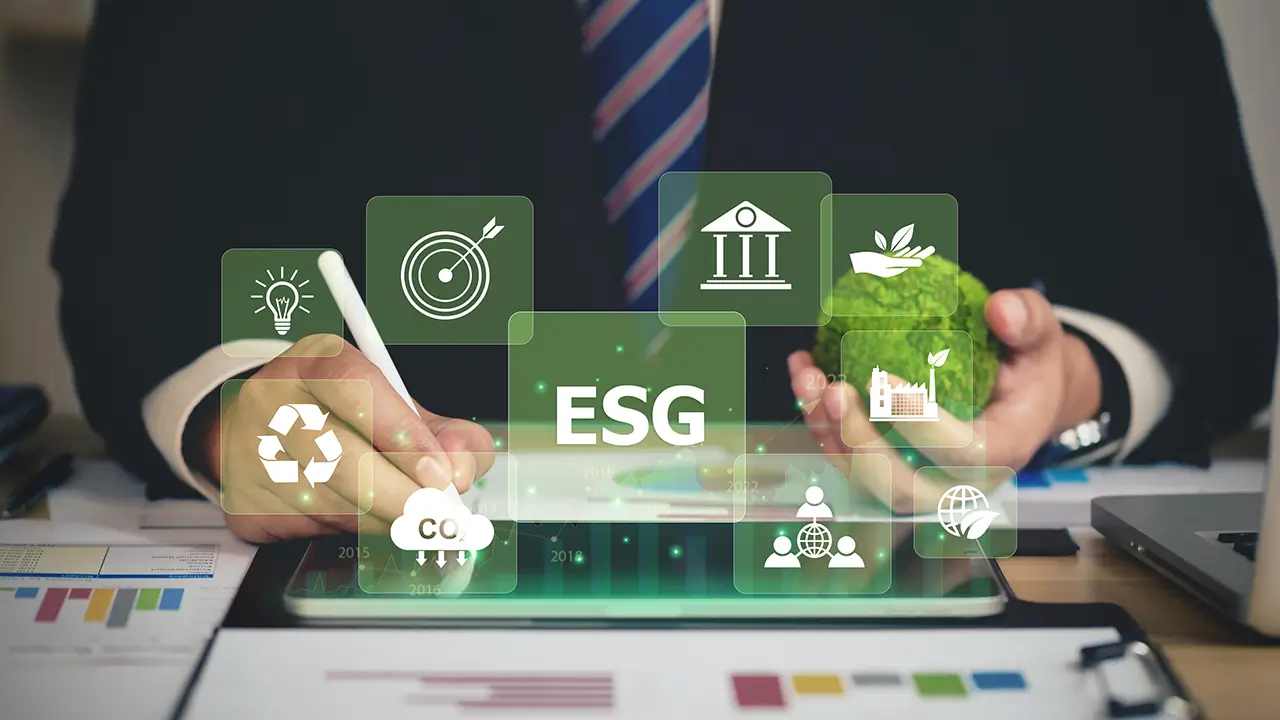
- Berzy Accountants
- April 23, 2025
- info@berzy.com.au
As the global business landscape evolves, Environmental, Social, and Governance (ESG) considerations have become a critical focus for companies across industries. In Sydney, where businesses are increasingly held accountable for their impact on the environment and society, ESG reporting is no longer optional—it’s a necessity. Accountants play an essential role in helping Sydney businesses navigate ESG reporting requirements, ensuring compliance, transparency, and sustainable growth.
What is ESG Reporting?
ESG reporting involves disclosing a company’s environmental, social, and governance practices and their impact. Key areas of focus include:
- Environmental: Carbon emissions, energy efficiency, waste management, and sustainable practices.
- Social: Diversity and inclusion, community engagement, employee welfare, and customer relations.
- Governance: Ethical practices, board diversity, risk management, and compliance with regulations.
Why ESG Reporting Matters for Sydney Businesses
1. Regulatory Compliance
Australia’s regulatory landscape increasingly prioritizes ESG factors. Businesses must comply with guidelines set by:- The Australian Securities Exchange (ASX) Corporate Governance Council.
- National and state environmental laws.
- Industry-specific ESG standards.
2. Stakeholder Expectations
Customers, employees, and investors demand transparency in how businesses address ESG issues. Meeting these expectations can:- Enhance brand reputation.
- Build customer loyalty.
- Attract top talent and responsible investors.
3. Competitive Advantage
Strong ESG performance positions businesses as industry leaders. Companies that excel in ESG reporting often:- Gain a competitive edge in securing contracts and partnerships.
- Achieve better financial performance in the long term.
Challenges in ESG Reporting
1. Data Collection and Management
Gathering accurate ESG data from multiple sources can be complex, especially for small and medium-sized enterprises (SMEs) with limited resources.2. Regulatory Complexity
Staying updated with evolving ESG regulations and standards requires expertise and constant monitoring.3. Measuring Impact
Quantifying the environmental and social impact of business activities involves specialized methodologies and tools.4. Cost Implications
Investing in sustainable practices and reporting systems can strain budgets, particularly for smaller businesses.How Sydney Accountants Support ESG Reporting
Accountants bring valuable expertise to the ESG reporting process, helping businesses overcome challenges and achieve their sustainability goals. Here’s how:
1. Establishing ESG Frameworks
Accountants assist in setting up structured frameworks for ESG reporting, tailored to the company’s industry and size. This includes:- Identifying relevant ESG metrics.
- Aligning reporting practices with global standards such as GRI, SASB, and TCFD.
2. Data Management and Analysis
Efficient data collection and analysis are critical for accurate ESG reporting. Accountants help:- Develop systems for gathering and organizing ESG data.
- Analyze data to identify trends and areas for improvement.
3. Compliance Assurance
Accountants ensure that businesses meet regulatory requirements by:- Conducting ESG audits to verify data accuracy.
- Preparing reports that align with legal and industry standards.
4. Financial Impact Assessment
Integrating ESG factors into financial decision-making is vital. Accountants:- Assess the cost-benefit analysis of sustainable initiatives.
- Highlight financial risks and opportunities related to ESG practices.
5. Stakeholder Communication
Effective ESG reporting requires clear and transparent communication. Accountants contribute by:- Drafting comprehensive ESG reports for stakeholders.
- Preparing disclosures that resonate with investors and customers.
Benefits of Professional Accounting Support for ESG Reporting
Working with experienced Sydney accountants offers numerous advantages, including:
- Improved Accuracy: Minimizing errors in ESG data and disclosures.
- Time Efficiency: Streamlining the reporting process to save time and resources.
- Strategic Insights: Leveraging expert advice to enhance ESG performance.
- Risk Mitigation: Avoiding penalties and reputational damage through compliance.
How to Get Started with ESG Reporting
Sydney businesses can take the following steps to initiate or improve ESG reporting:
- Assess Current Practices: Identify existing ESG efforts and gaps.
- Set Clear Goals: Define measurable ESG objectives aligned with business priorities.
- Engage Experts: Collaborate with accountants for guidance and support.
- Invest in Technology: Use ESG reporting tools to streamline data collection and analysis.
- Communicate Progress: Regularly update stakeholders on ESG initiatives and achievements.
Why Choose Berzy Chartered Accountants for Superannuation Support?
As ESG considerations continue to shape the business landscape, Sydney companies must prioritize transparent and effective ESG reporting. Accountants play a pivotal role in guiding businesses through this complex process, ensuring compliance and fostering long-term success. At Berzy Chartered Accountants, we’re dedicated to helping businesses navigate ESG requirements with confidence and clarity.
Contact us today to learn how we can support your ESG reporting journey and position your Sydney business for sustainable growth.
Contact us today to learn how we can support your ESG reporting journey and position your Sydney business for sustainable growth.
Berzy Chartered Accountants & Mortgage Brokers are an accounting firm committed to delivering comprehensive financial solutions that empower individuals and businesses to achieve stability and confidence in their financial future
